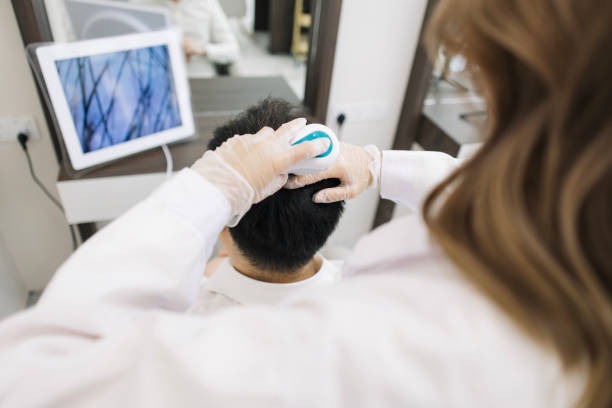One of the most prevalent and difficult types of psoriasis is scalp psoriasis, which affects around 50% of psoriasis sufferers. More dermatologists are sharing their knowledge on how to properly manage the symptoms of scalp psoriasis as awareness of the condition has increased recently. Knowing what dermatologists want you to know could help you find relief if you have been dealing with chronic itching, peeling, or redness on your scalp.
Menu list
Understanding Scalp Psoriasis
Rapid skin cell proliferation is a symptom of the chronic inflammatory disease known as scalp psoriasis. Thick, scaly spots that are itchy, irritated, and occasionally painful are the result of this quick turnover. In contrast to dry scalp or dandruff, scalp psoriasis typically results in silvery-white scales that stretch past the hairline to the forehead, back of the neck, or around the ears. These spots may flake off more readily than normal dandruff, which can be uncomfortable or embarrassing.
What Causes Psoriasis on the Scalp?
Numerous things can cause or exacerbate psoriasis on the scalp. One major contributing factor is stress, which can trigger immune system activation that exacerbates the illness. Changes in the weather, particularly in arid and cold locations, can further exacerbate symptoms by drying out your scalp. Following infections or certain drugs, some patients experience flare-ups. Your scalp might get irritated and more uncomfortable even with harsh hair care products. To find potential triggers, it is critical to pay attention to your surroundings and routine.
Frequently Held Myths Regarding Scalp Psoriasis
A prevalent misconception is that psoriasis on the scalp is communicable. Dermatologists stress that person-to-person transmission of scalp psoriasis is impossible and that it is not an infection. The idea that improper cleanliness leads to psoriasis of the scalp is another fallacy. Actually, your immune system—rather than cleanliness—is the cause of this disease. Aggressive scrubbing or excessive washing may possibly make the symptoms worse. You may handle your disease without needless guilt or misunderstanding if you are aware of these truths.
Effective Treatment Options
Dermatologists provide a range of treatments specifically designed to address psoriasis of the scalp. Medicated shampoos that contain ketoconazole, salicylic acid, or coal tar can help reduce irritation and scaling. In more severe cases, doctors may administer vitamin D analogs or topical corticosteroids. These therapies reduce inflammation and slow down the development of new skin cells. Light treatment, which targets afflicted areas with controlled UV light, is useful for some people. By focusing on particular immune system pathways, more recent biologic treatments for chronic scalp psoriasis show encouraging outcomes.
Daily Scalp Care Advice
Daily scalp care might help reduce symptoms. Even in cases of severe irritation, refrain from scratching and use mild, fragrance-free shampoos. Using treatments as prescribed and without missing any doses can lead to better results. When styling your hair, use gentle products and stay away from dryers and straighteners that use too much heat. Moisturizing your scalp helps keep it from drying out and breaking. Over time, little lifestyle adjustments like exercising or practicing meditation to manage stress may lessen flare-ups.
Actual Narratives It is Controllable
Think about Lisa, who spent years battling scalp psoriasis before discovering an effective treatment method. She greatly decreased flare-ups and regained her confidence by combining medicated shampoos with stress-reduction strategies. In order to remind you that even though scalp psoriasis might be persistent, it is possible to manage and live well with it, dermatologists frequently share these success stories.
Knowing When to Consult a Dermatologist
It is crucial to see a dermatologist if over-the-counter remedies do not help your scalp psoriasis or if it gets worse. They can offer individualized treatment, modify prescriptions, or investigate cutting-edge treatments. If left untreated, scalp psoriasis can result in infections or hair loss. Early expert assistance is crucial for symptom management and scalp health maintenance.
You do not have to deal with scalp psoriasis alone, despite how annoying it may feel. Dermatologists want you to be aware that there are numerous alternatives for treatment and successful symptom management. Speak with a healthcare provider if you experience ongoing redness, scaling, or itching on your scalp so they can help you get relief and a healthier scalp.





